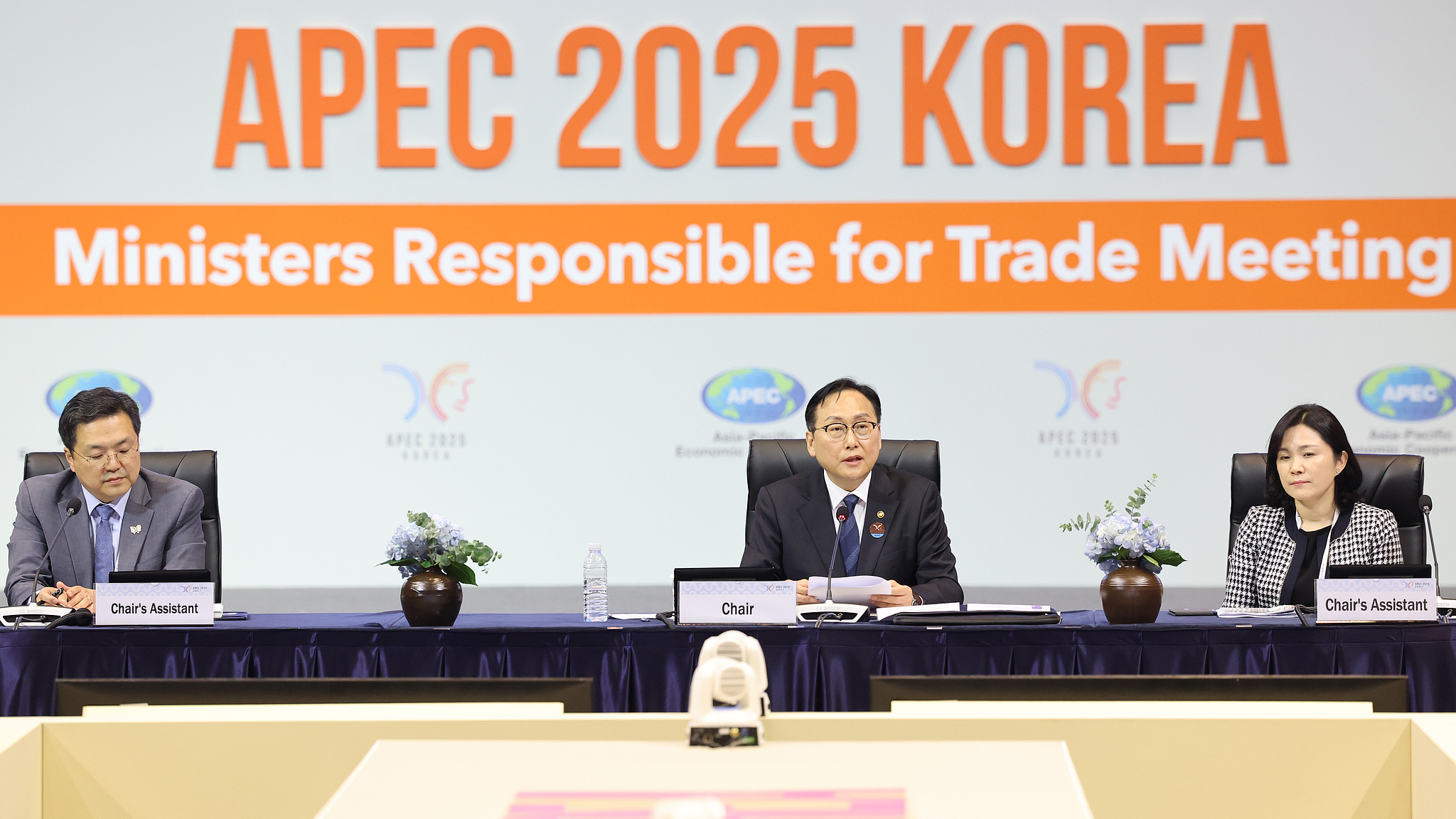JEJU ISLAND: The 31st Asia-Pacific Economic Cooperation (APEC) Ministers Responsible for Trade Meeting, which brought together trade and finance leadership from across one of the world’s most important economic regions, was held from May 15 to16 in South Korea’s Jeju Island.
During the two-day event, China’s Vice Minister of Commerce Li Chenggang and US Trade Representative Jamieson Greer met on the sidelines of the meeting, reported Reuters.
At the APEC meeting, Li elaborated on China’s position on issues relating to upholding the multilateral trading system, promoting connectivity throughout the region, the role of artificial intelligence innovation in the promotion of trade, and sustainable trade contributing to prosperity for all.
During the opening of the annual meeting, South Korean Trade Minister Cheong In-kyo highlighted how the global economy and trade face added strain from uncertainties and urged the bloc to foster dialogue to tackle political and economic challenges.

South Korean Trade Minister Cheong In-kyo addresses the opening ceremony of the APEC Ministers Responsible for Trade Meeting in South Korea’s Jeju Island, May 15, 2025. /CFP
Ahead of the meeting, an economic report compiled by the APEC Policy Support Unit expects moderate growth in the APEC region in 2025, as opposed to the robust growth experienced in 2024.
Economic growth in the region is expected to be 2.6 and 2.7 percent in 2025 and 2026, respectively, marking a drop from the 3.6 percent recorded in 2024.
Short-term forecasts were revised downward due to rising policy uncertainties, escalating trade tensions, and shifting global supply chains.
External demand was also found to be weakening, and the rise in protectionist measures is exacerbating trade vulnerabilities, among both member economies, as well as others around the world.
Trade outlook for the economic region is equally reserved, with exports and imports expected to grow by 0.4 percent and 0.1 percent, respectively, in 2025 — a sharp decline compared to the 5.7 and 4.3 percent recorded in 2024. The report points to lower external demand, particularly in manufacturing and consumer goods, while rising uncertainty over goods-related measures is also expected to have significant impact on services trade.
“Fragmented and reactionary trade policies are becoming the norm,” said Glacer Vasquez, co-author of the report. “While some economies pursue trade-facilitating reforms, these are often offset by inward-looking protectionist measures. This divergence is hampering regional cohesion.”
“This is not the time to retreat behind borders. This is the time to double down on cooperation,” said Carlos Kuriyama, director of the APEC Policy Support Unit. “Through collective action, APEC economies can navigate uncertainty and lay the groundwork for a more resilient, prosperous future,” Kuriyama added.
Founded in 1989, APEC has grown to include 21 member economies, accounting for half of the global trade volume and 60 percent of the world’s gross domestic product.























